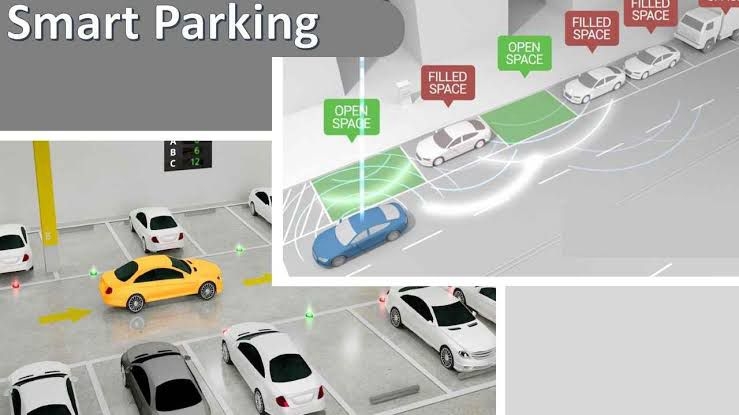
Smart Parking
Smart parking completely removes the guesswork of the parking experience. For the last 135 or so years, since the invention of the car, drivers have relied on instinct or luck to locate an available parking space.
Smart parking is 3 main things:
- Real-time data and guidance to drivers so they can locate the best available parking space quickly.
- Parking asset control for cities, operators and facility management so they can understand occupancy, payment compliance and much more.
- A direct way to affect climate change with cars searching for parking less so we have a sustainable future on this planet.
How does smart parking work?
Smart parking, at its core, is data collected from IoT technology and AI to deliver a better overall parking experience.
Let’s break it down - here are the essential pieces needed to make smart parking work:
- A sensor
- Communication to the driver
- A dashboard
The sensor collects and processes data at the location of the parking area or parking spaces. There are many types of smart parking sensors (continue reading).
Communicating to the driver happens in a variety of ways depending on the environment or goal trying to be reached. Once data about vehicle occupancy, time of stay, payment information and more is collected from advanced parking sensors, some of this information needs to be delivered to the driver in real-time. This is typically done through an app or with local on-street digital signage.
Smart parking systems are built to be autonomous but cities, airports, shopping centers, operators and more can view their parking data from a backend dashboard.
With the pieces in place, imagine you are driving to the city center to attend an event and soon you will need to find a place to park.
Without a smart parking system in place: you leave early to have adequate time to find parking -> you take the main roads, which are congested -> you rely on your experience to revisit areas of the city that are more likely to have free parking -> you first try to park at or near the event location itself or on the street a few blocks away -> if nothing is free, you circle the maze of one-way streets hoping for a free space -> if luck is against you, you look for a parking garage in anticipation that there are free parking spaces there.
With a smart parking system in place: before you leave your home, you check your parking app to be guided to the best available spot. Or you head towards the city center, you see dynamic smart parking signage and it guides you turn by turn to the best available spot.
Smart parking systems
For simplicity’s sake, we will divide smart parking systems into 3 main types:
- Ground sensor technology
- Counter technology
- Overhead sensor or camera-based technology
SMART PARKING GROUND SENSORS
Ground sensors have been around for decades now and haven’t changed much over the years. With the use of radar technology, ground sensors are installed into the concrete at each parking space or bay. When a car enters the space, the sensor below will identify an object above it and register that single parking space as occupied. There are many ground sensor manufacturers worldwide.
PARKING COUNTER SYSTEMS
Typically done in more structured parking lots or enclosed parking garages, a smart parking counting system can be deployed. This usually involves a raiseable gate that allows cars to enter and exit while it counts the number of vehicles and dispenses a ticket for payment.
OVERHEAD PARKING SENSORS OR CAMERA-BASED SYSTEMS
With the use of overhead parking sensors or cameras, large parking areas or on-street parking can be viewed more efficiently from above. Utilizing a lamppost or building, 1 smart parking sensor can detect many cars at once rather than one space at a time.
Benefits of smart parking
We have touched on some inherent benefits up till now, but here is a list of the top benefits why to consider deploying a smart parking solution:
- Reduces unnecessary vehicle emissions caused by parking search traffic
- Saves time and hassle for drivers to find (and pay) for their ideal parking space quickly and easily
- Generates data that can be leveraged to connect other modes of transportation - hints the concept of a mobility hub. Such as ride-sharing, bike hire, scooters or public transportation.
